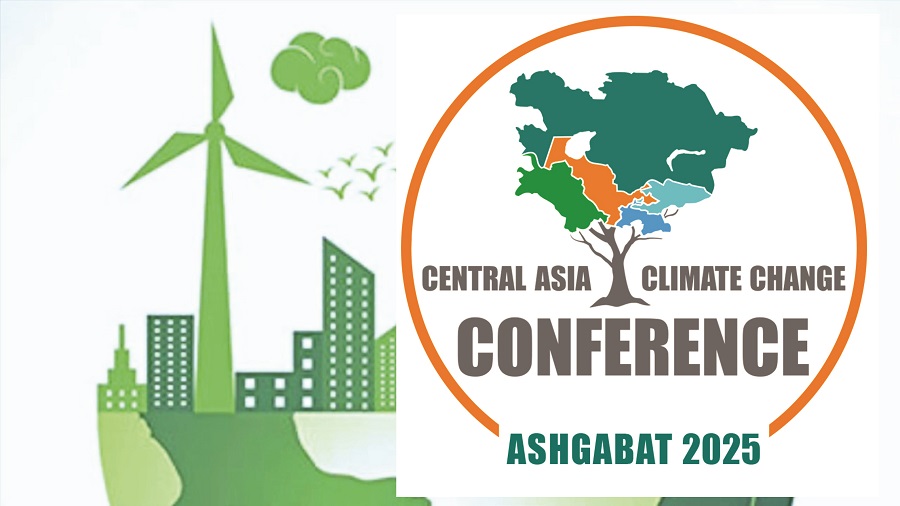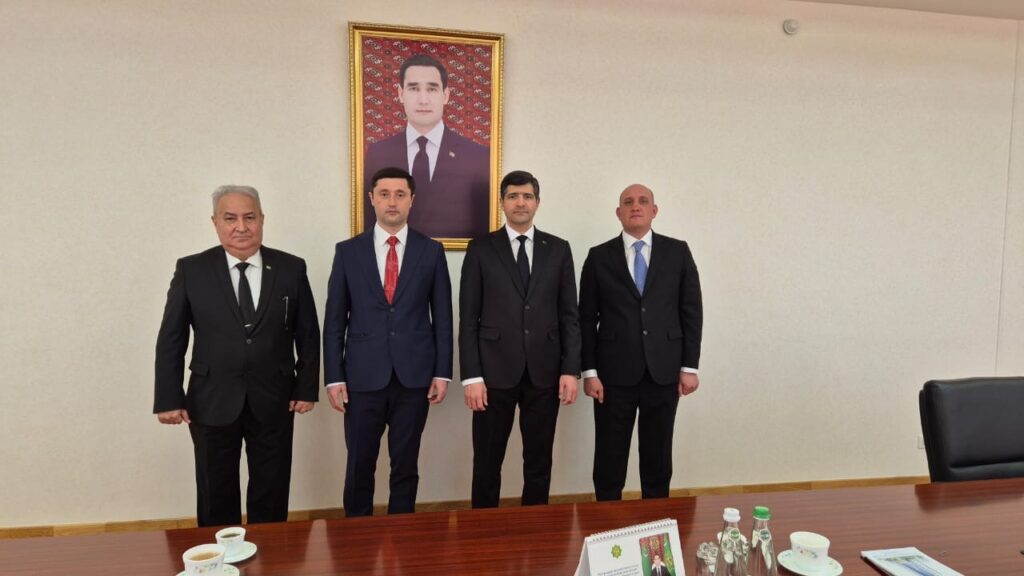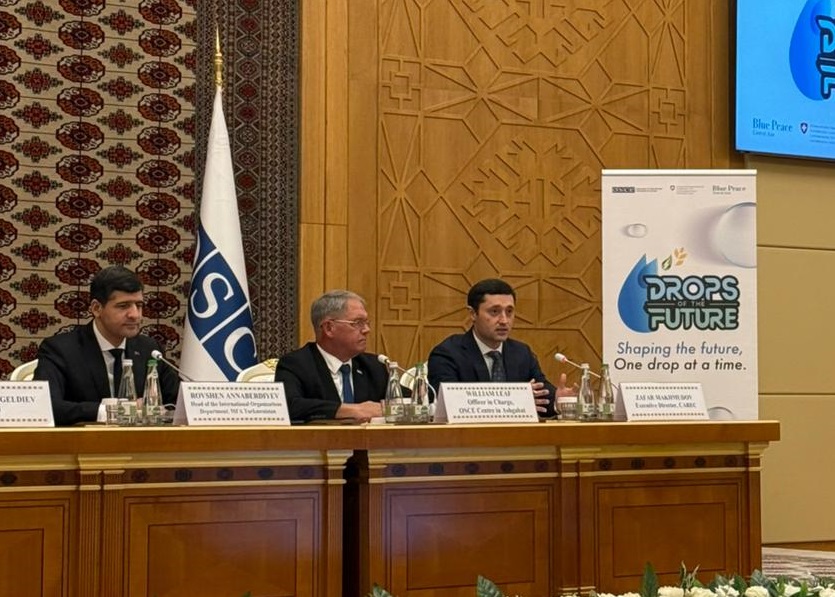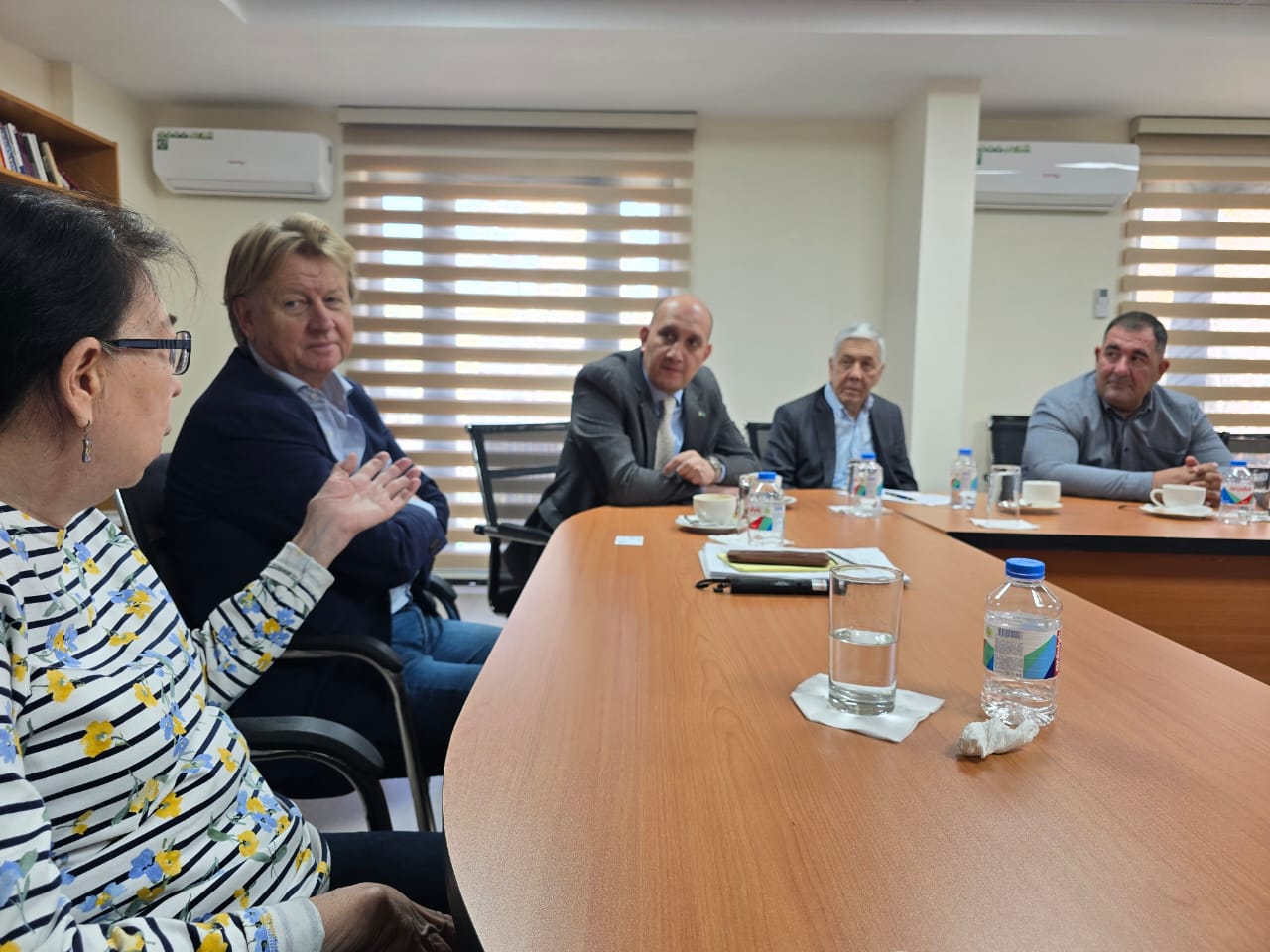
The Environmental Management Coordinator of the OSCE Office of the Coordinator for Economic and Environmental Activities, Mr. Christian Melis, arrived in Ashgabat on an official visit, together with Professor and Doctor of Sciences Jerzy Jendroska, an authoritative expert in the field of Strategic Environmental Assessment (SEA) and Environmental Impact Assessment (EIA). Professor Zhendrozhka has extensive academic and practical experience gained in Europe and Central Asia, and presented current approaches in these areas at the meeting.
On November 7, a presentation on “International practice and basic principles of Strategic Environmental Assessment and Environmental Impact Assessment” was held in Ashgabat. The meeting was attended by representatives of the NGO “Society for the Protection of Nature of Turkmenistan”, the NGO “Tebigi Kuvvat”, the Aarhus Center of Turkmenistan, the Society of the Disabled of Turkmenistan, who got acquainted with the best international practices and the fundamental principles of SEA and EIA.
Mergen Kepbanov, Director of the Project Office of the Regional Environmental Centre for Central Asia (CAREC) in Turkmenistan, also participated in the event, noting the importance of applying international approaches to environmental assessment in Central Asia.
Currently, the Aarhus Center in Turkmenistan, with the support of the Ministry of Environmental Protection of Turkmenistan, is implementing the project: “Strengthening national and regional capacities and cooperation in the field of strategic environmental assessment (SEA) in Central Asia – Phase II”
The project is a continuation of the project “Strengthening National and Regional Capacities and Cooperation on Strategic Environmental Assessment (SEA) in Central Asia, including in response to climate Change” (implemented in close cooperation with the Secretariat of the UNECE Espoo Convention in the period September 2019 – December 2021), resulting in the following achievements results:
– Increased awareness and capacity building of government representatives, environmental and planning industry bodies on the benefits, principles and procedures of SEA; and increased cooperation within and between countries;
– The needs assessment was followed by an action plan to establish a national SEA system in full compliance with the SEA Protocol in each of the beneficiary countries.
Phase II of the project is aimed at providing further support to beneficiary countries in establishing effective national SEA systems and expanding regional cooperation in solving transboundary environmental problems. The project will also strengthen existing environmental impact assessment procedures, especially in a transboundary context, as they require further improvement among beneficiary countries, including with regard to public participation and consultations with stakeholders.
“The Convention on Environmental Impact Assessment in a Transboundary Context (Espoo Convention) establishes the obligations of the Parties to assess the environmental impact of certain activities at an early planning stage. It also establishes a general obligation for States to notify and advise each other on all major projects under consideration that may have a significant adverse impact on the environment across borders,” Mergen Kepbanov said.
The event confirmed the desire of Turkmenistan and the OSCE to strengthen cooperation in the field of environmental safety and sustainable development, as well as to exchange experience and knowledge necessary for the implementation of international environmental standards.
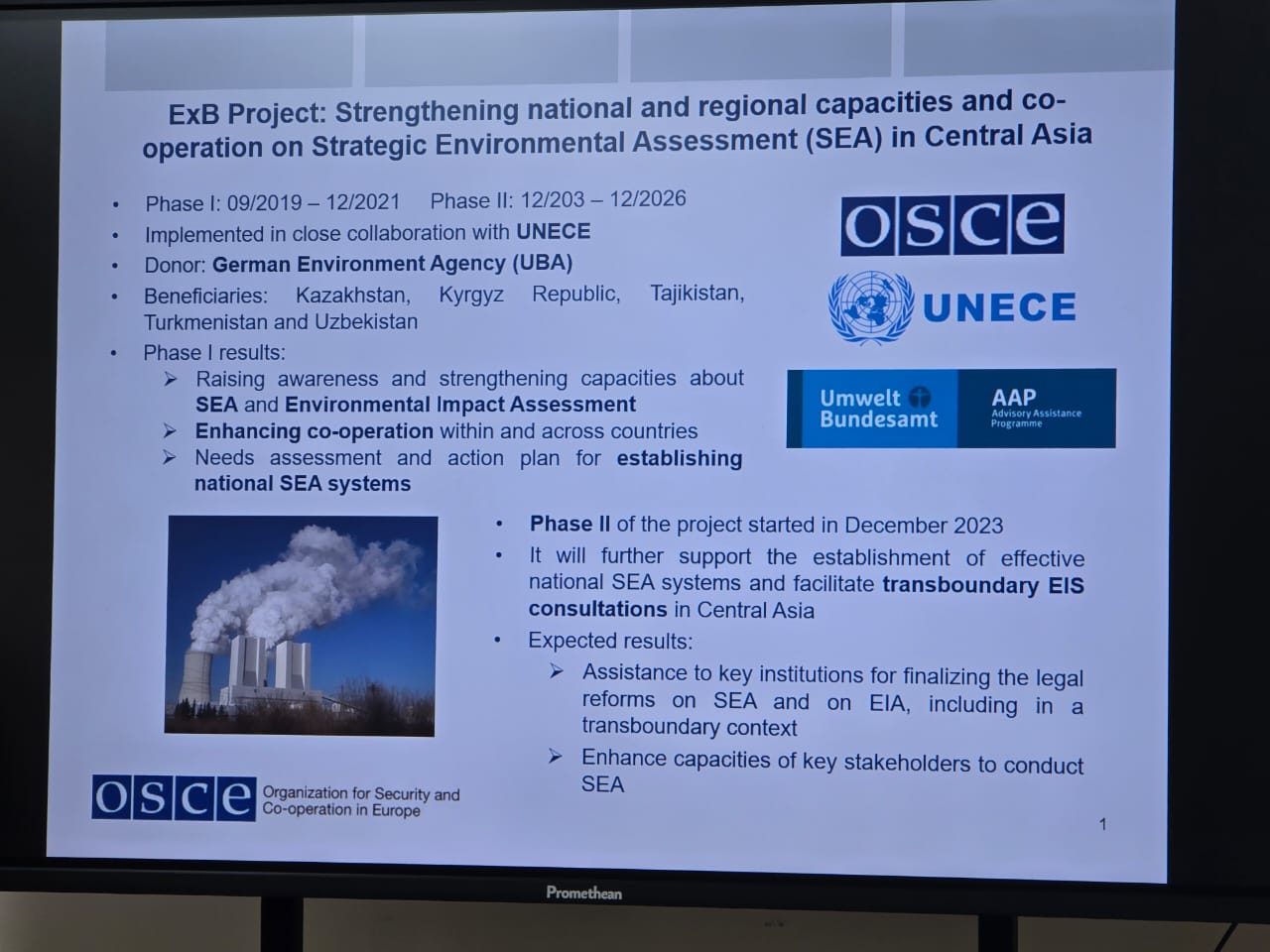
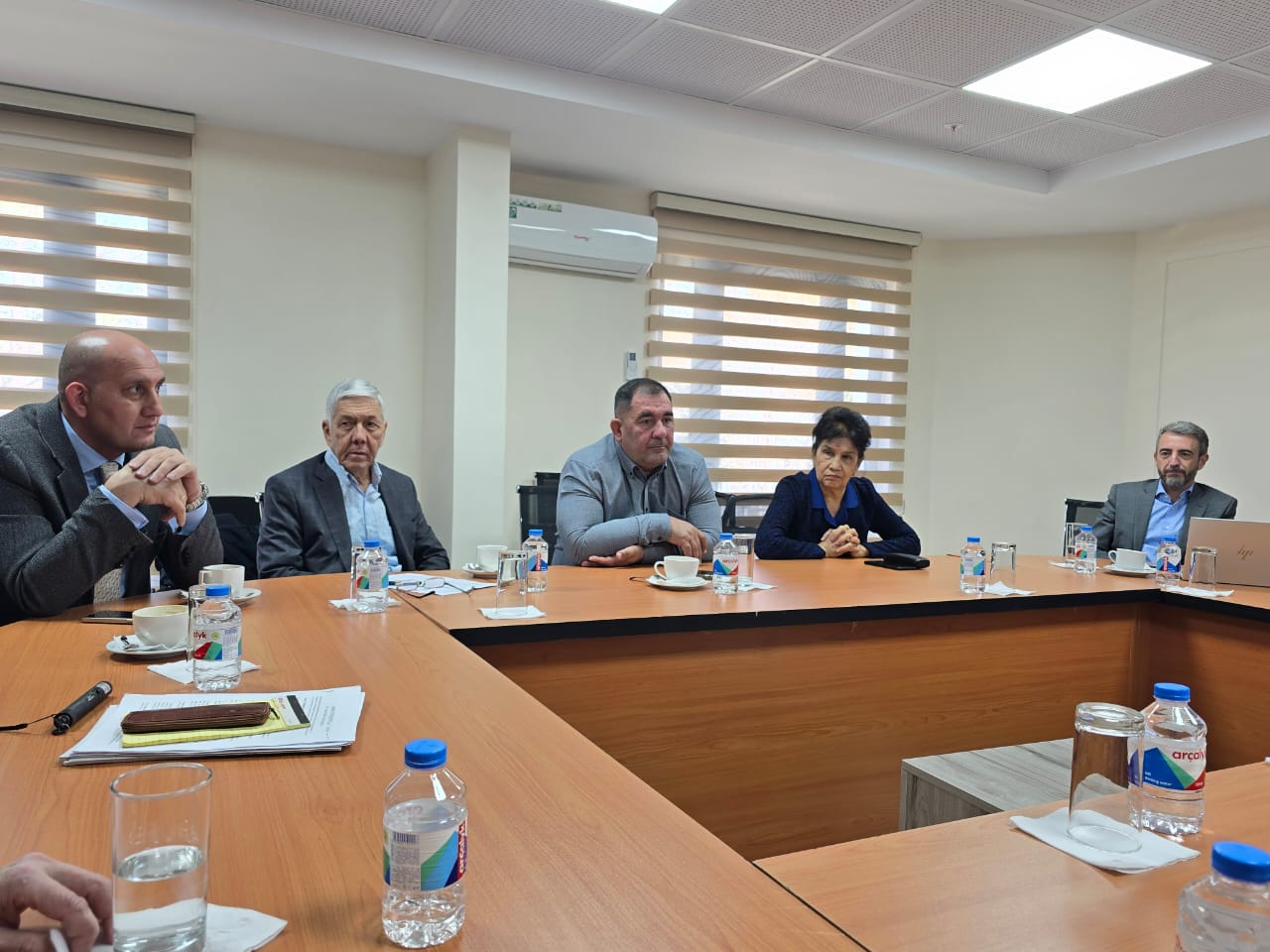
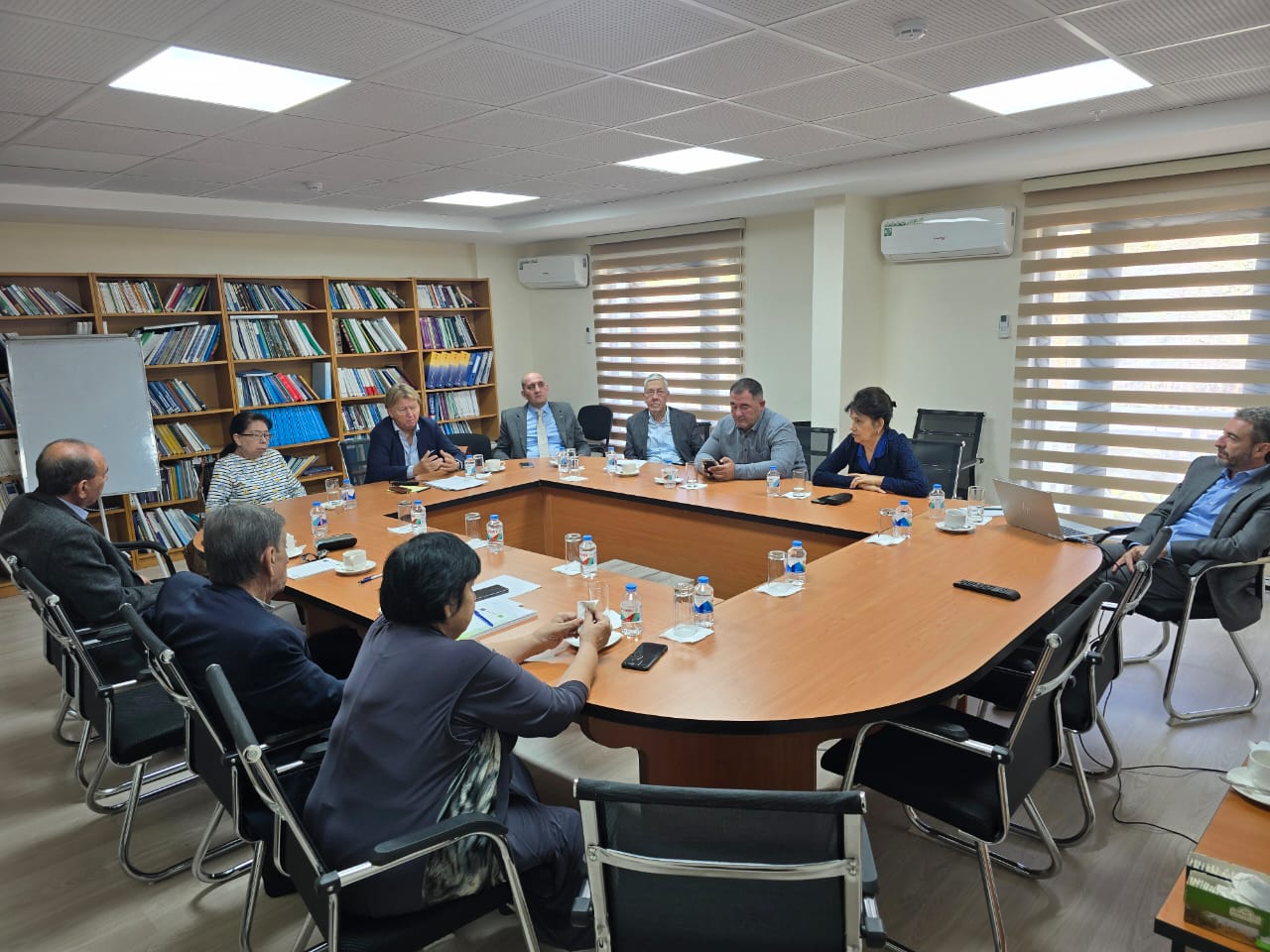
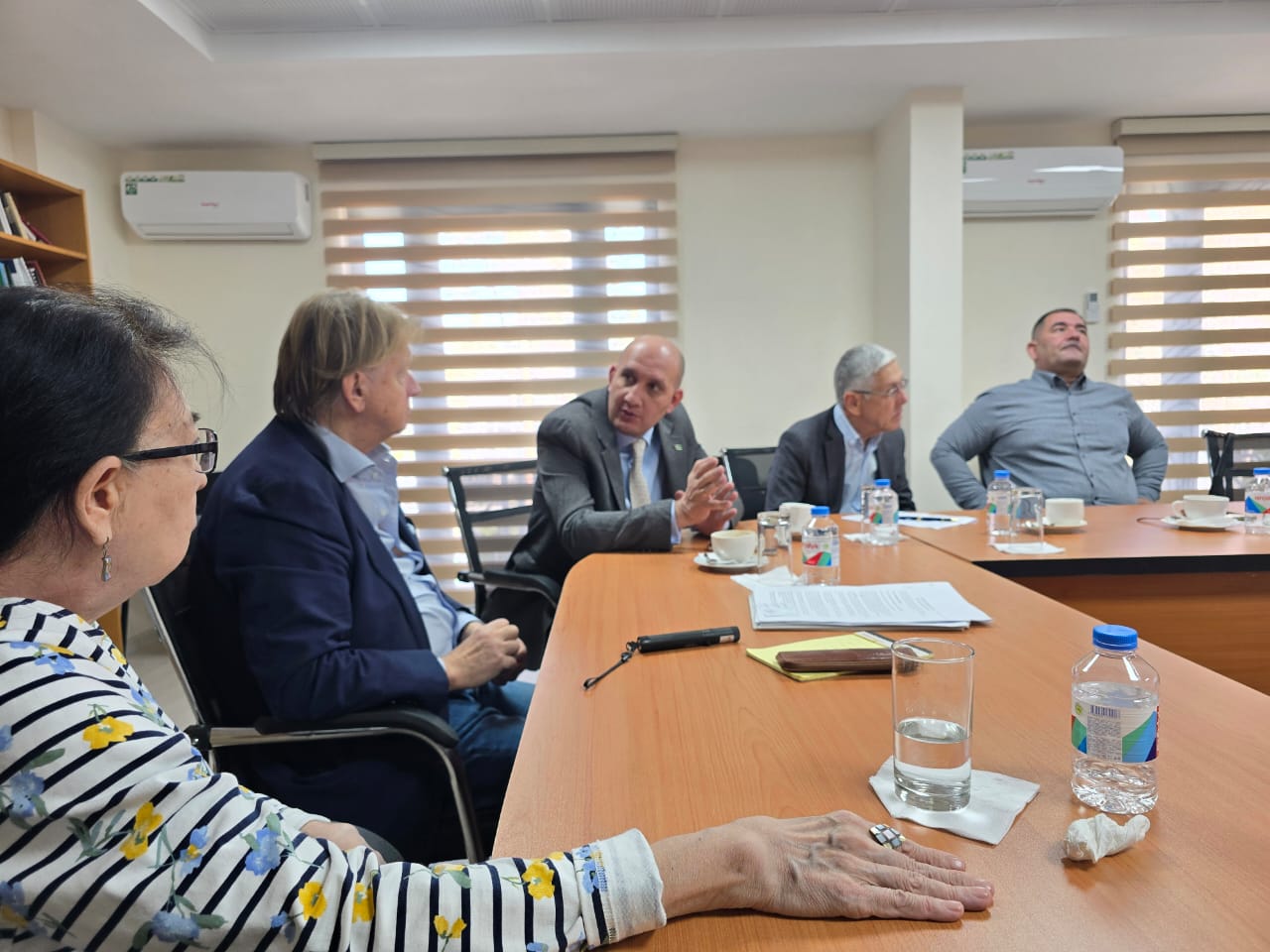
Additional information:
Mergen Kepbanov – Director of the CAREC Project Office in Turkmenistan

